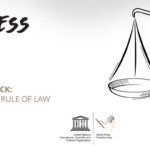By Charity Ahimbisibwe
On January 30, 2018, the Kenyan government shut down four news channels; Citizen TV, Inooro TV, NTV and KTN for announcing plans to air the ‘swearing-in’ of opposition leader Raila Odinga as president.
Kenyans took to the streets of Nairobi and through various social platforms, protested the closure. The protest was joined by lawyers, who, on February 1, went to court and ordered a 14-day suspension of the shutdown to allow for a legal challenge.
These protests and condemnations by citizens who know and value the role of the media, is a lesson Ugandans should pick.
Unfortunately, in Uganda, it has become common for government to shut down media houses as and when it pleases. During the 2016 elections, social media was shut down on Election Day in February and as Yoweri Museveni swore-in as president on 12th May.
Most recently, since September 2017 to date, media houses have been on the receiving end of crackdown. The Red Pepper (and by extension its sister publications), was in November shut down following the publication of a story that government says was in breach of national security, among other charges. The paper only resumed operations on 29 January 2018 after meeting President Museveni and getting a ‘presidential pardon’.
Before that, several upcountry radio stations were shut down for airing content relating to the presidential age limit removal contained in Article 102(b) of the Constitution. Uganda Communications Commission, in all counts stated that the stations were in breach of minimum broadcasting standards. Relatedly, editors of Daily Monitor and Red Pepper were summoned by police in relation to publishing stories about the presidential age limit debate, while a ban was slapped on live media coverage of the same.
Through all these crackdown against the media, Ugandans remain conspicuously silent, except for a few voices on social media and by civil society organisations. These voices eventually died down.
In my view, the problem of intimidation of journalists and the crackdown against the media can be solved if the Ugandan public learned from their Kenyan counterparts. Every-time a media house is shut down, Ugandans should protest using social media and various legal means. If the local press cannot carry the story of the shutdown, the international media will pick it up and keep it running. The idea is not to relent every time intimidation rears its ugly head.
Secondly, media houses should at all times publish fact-based and objective stories. These stories will speak for themselves in courts of law and in the eyes of the public. While some journalists lack professionalism, this should be addressed so that the entire media fraternity is not exposed to high-handedness by the state and individuals because of lapses by a few rotten eggs.
The Writer is the Communication and Advocacy Manager at FHRI/CCEDU







